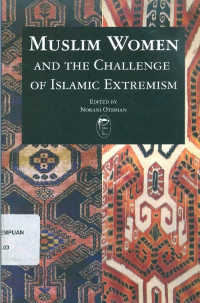
Text
Muslim women and the challenge of Islamic extremism
The ascendancy of political Islam since the 1960s and 1970s throughout the Muslim world has spawned a variety of ‘Islamist movements and activisms’. They range from those that engage in political violence (often referred to as ‘militant Islam’ or ‘jihadic Islam’) to those with peaceful but politicized missionary, proselytizing and social reform projects (also known as ‘dakwah or da'awa’ Islamic movements) and also to those seeking complete social change or revolution through the establishment of an ‘Islamic state’. The first part of this article identifies the issues and major challenges confronting Muslim women in Southeast Asia in the face of increasing religious extremism within the region's Islamist movements. The second part of the article describes what strategies women's groups in Southeast Asia have employed to engage with these movements and surmount the challenges they posed to women's rights and women's access to justice under the law, particularly Muslim family laws and the state's administrative policies and procedures relating to religion. It argues that in order for Muslim women to advocate reforms and change of laws that are detrimental to them, there is a need for Muslim women's groups to form broad coalitions and alliances and to work with progressive and democratic Muslim intellectuals and scholars. In order to reclaim their rights and justice in Islam and under its laws, Muslim women must also be actively engaged with the project of interpretation of texts and laws.
Availability
| KP.II.000314 | KP II OTH m | My Library | Available |
| KP.II.000314-01 | KP II.OTH m | My Library | Available |
Detail Information
- Series Title
-
-
- Call Number
-
KP II OTH m
- Publisher
- Kuala Lumpur : Sisters in Islam., 2005
- Collation
-
xiv, 215p. ; 23 cm.
- Language
-
English
- ISBN/ISSN
-
983262224247
- Classification
-
KP II
- Content Type
-
-
- Media Type
-
-
- Carrier Type
-
-
- Edition
-
-
- Subject(s)
- Specific Detail Info
-
-
- Statement of Responsibility
-
-
Other version/related
No other version available
File Attachment
Comments
You must be logged in to post a comment
 Computer Science, Information & General Works
Computer Science, Information & General Works  Philosophy & Psychology
Philosophy & Psychology  Religion
Religion  Social Sciences
Social Sciences  Language
Language  Pure Science
Pure Science  Applied Sciences
Applied Sciences  Art & Recreation
Art & Recreation  Literature
Literature  History & Geography
History & Geography